Flexible Learning Pilots
Flexible Learning pilots: evaluation report
Discover the key findings and recommendations made from ENFUSE Group's evaluation of the pilots.
Read more
Our Flexible Learning pilots have been an exciting mechanism for testing out new ideas, and establishing new practices and processes to change and enhance how we deliver teaching and learning.
From embedding virtual reality into teaching to experimenting with new AI software, our Flexible Learning pilots offer valuable insights and lessons learned for our wider community to take away from their pilot reports and video series.
These reports have been written by the pilot leads and are personal accounts and evaluations of their experience and as such they are presented here in their original submitted form to Flexible Learning Programme. As part of our pilots' ethos we wanted to ensure that the reports were an opportunity to provide open and honest accounts of their experience.
Discover below what our pilots have uncovered.
-(700-x-160-px)-(6).png)
Exploring artificial intelligence
Reimagining teacher training: Liz Birchinall’s journey with Teachmate
-[staffnet].jpg)
Title: Perceptions, experiences and learning from using an AI tool ‘Teachmate' to support trainee teacher learning on a one-year primary PGCE programme.
Pilot Lead: Liz Birchinall
Summary: The University’s innovative pilot of Teachmate, a generative AI teachers' assistant, in its one-year Primary PGCE programme positions the University as a national and international frontrunner in AI-driven teacher education. By embracing this cutting-edge technology, the University joins leading schools and organisations like Teach First in shaping the future of teacher training through rigorous, forward-thinking research in AI's role in teacher education.
Impact:
The pilot's findings directly influenced their programme delivery and curriculum development within the academic year:
- Academic staff responded to early findings and revised guidance on optional AI use during teaching practice.
- A semester 2 teaching session on prompt engineering was introduced into our training programme.
- School-based mentors and headteachers developed enhanced understanding of AI integration.
- University staff gained skills and knowledge for training teachers in AI tool use.
In light of the pilot's findings, the University published 'New study shows AI enhances teacher development'.
Want to know more? You can read the full report here.
Shaping the future of feedback: Elizabeth Lewis' lessons from AI-assisted feedback
Title: Exploring AI-Assisted Feedback to Enhance Flexibility in Assessment
Pilot Lead: Elizabeth Lewis
Summary:
This pilot empowered staff to deliver clearer, more actionable feedback by combining human expertise with AI-driven coaching prompts. Students embraced this human+AI approach for its clarity and empathy, while staff reported boosted confidence and consistency though efficiency gains will grow with further training and adoption.
Impact:
- Staff confidence and competence with AI-Assisted Feedback has improved significantly as a result of this pilot which was highlighted by the completion of a staff survey.
- Students now recognise that human+AI feedback used in conjunction is clearer and more actionable than human only and AI only feedback.
- The pilot has highlighted strong potential for long-term adoption if key conditions are met, such as, ongoing staff training, clear communication with students and alignment with institutional AI strategies.
Lessons Learned:
- Lack of integration with existing workflows risks inefficiency for experienced staff.
- Experienced GTAs (Graduate Teaching Assistants) are resistant due to loss of personal style, incentives will be needed to encourage adoption.
- Students valued clarity, detail and empathetic prompts with human+AI preferred to AI only.
- There was a fear that over-reliance could undermine the "human-ness" of feedback and there was also a cautious attitude from staff with entrenched routines.
Want to know more? You can read the full report here.
Smarter marking: Dan Jagger and Sharon Gardner put Graide to the test
Title: Graide Software Evaluation
Pilot Leads: Dan Jagger and Sharon Gardner
Summary:
This pilot boldly explored the power of Graide, an AI-driven assessment tool designed to revolutionise marking and feedback. With over 1,100 students involved across faculties, the project showcased key insights into the challenges of adopting AI in higher education, and explored if Graide’s smart feedback and integration with Blackboard and Canvas could enhance academic efficiency and elevate the student experience.
Impact:
The pilot determined whether or not Graide would be a valuable addition to the University's software portfolio. The pilot has improved understanding of some of the current capabilities and limitations in applying AI software to marking and feedback. The pilot provides an excellent basis for approaching the evaluation of AI software and AI additions to existing software in future.
Lessons Learned:
- The IGRR process at the time of the pilot was time consuming, the questions were hard to interpret. It would be beneficial to have additional support from ITS/IGO to enable faster completion.
- There was a considerable up-front work involved for evaluators in setting up the software before they could see benefits.
- In some cases, there were benefits to being able to trial the software on marking without exposing students to it.
- There was a misconception that the AI was completely marking the assignments, this was not the case, it was supporting faster and higher quality marking by making suggestions
Want to know more? You can read the full report here.
-(700-x-160-px).png)
Experimenting with virtual reality
PharmVR: Transforming pharmacy training through virtual reality and AI
Title: PharmVR: Mastering consultation skills through virtual reality/GenAI simulation for Tomorrow’s Pharmacists
Pilot Lead: Dr Shreena Joshi Pradhan
Summary:
This PharmVR pilot, where immersive virtual reality and GenAI simulations revolutionised pharmacy education by transforming traditional consultation training into dynamic, AI-driven experiences. With 19 bespoke scenarios and overwhelmingly positive student feedback, this innovative approach boosted confidence, enhanced learning, and set the stage for a scalable, future-ready model of clinical skills development.
Impact:
- 93% of students reported feeling more confident in their patient communication skills after using the VR simulations.
- 100% of participants said they would recommend the VR experience to peers, and 86% expressed a desire for more VR-based simulated learning environments (SLEs).
- The VR simulations can be reused across cohorts, reducing the need for live actors and assessors, making it a sustainable and scalable solution.
Copy-of-_A745091.jpg)
-Copy-of-_A745103.jpg)
Lessons Learned:
Recruiting staff on a casual basis within a short timeframe proved to be a significant challenge. The university's regulation limiting casual contracts to a maximum of 13 weeks per individual further complicated the process. For future projects, it will be important to plan recruitment well in advance and explore a wider variety of advertising platforms to attract suitable candidates and ensure a smoother, more timely hiring process.
The integration of AI-driven assessment within the VR environment introduced a range of technical and design challenges. Most notably, there were occasional delays in avatar responses, which disrupted the natural rhythm of user interaction and impacted immersion.
A more proactive and integrated communication strategy, such as incorporating project information into course specific pages (such as on Canvas or Blackboard), delivering short pitched at relevant lectures, and engaging academic leads and personal tutors early on, might have increased engagement with VR project in the wider team.
Sharing best practice
Shreena Joshi Pradhan attended the 2025 7th International Workshop on Artificial Intelligence and Education (WAIE) in Yokohama, Japan this September 2025, and presented on her pilot and won Best Oral Presentation Award, where lots of delegates got to trial Shreena's simulation and shared lots of positive feedback.
Want to know more? You can read the full report here.
Bite-size innovation: Rachel Purcell’s VR approach to eating, drinking & swallowing pre-registration competencies
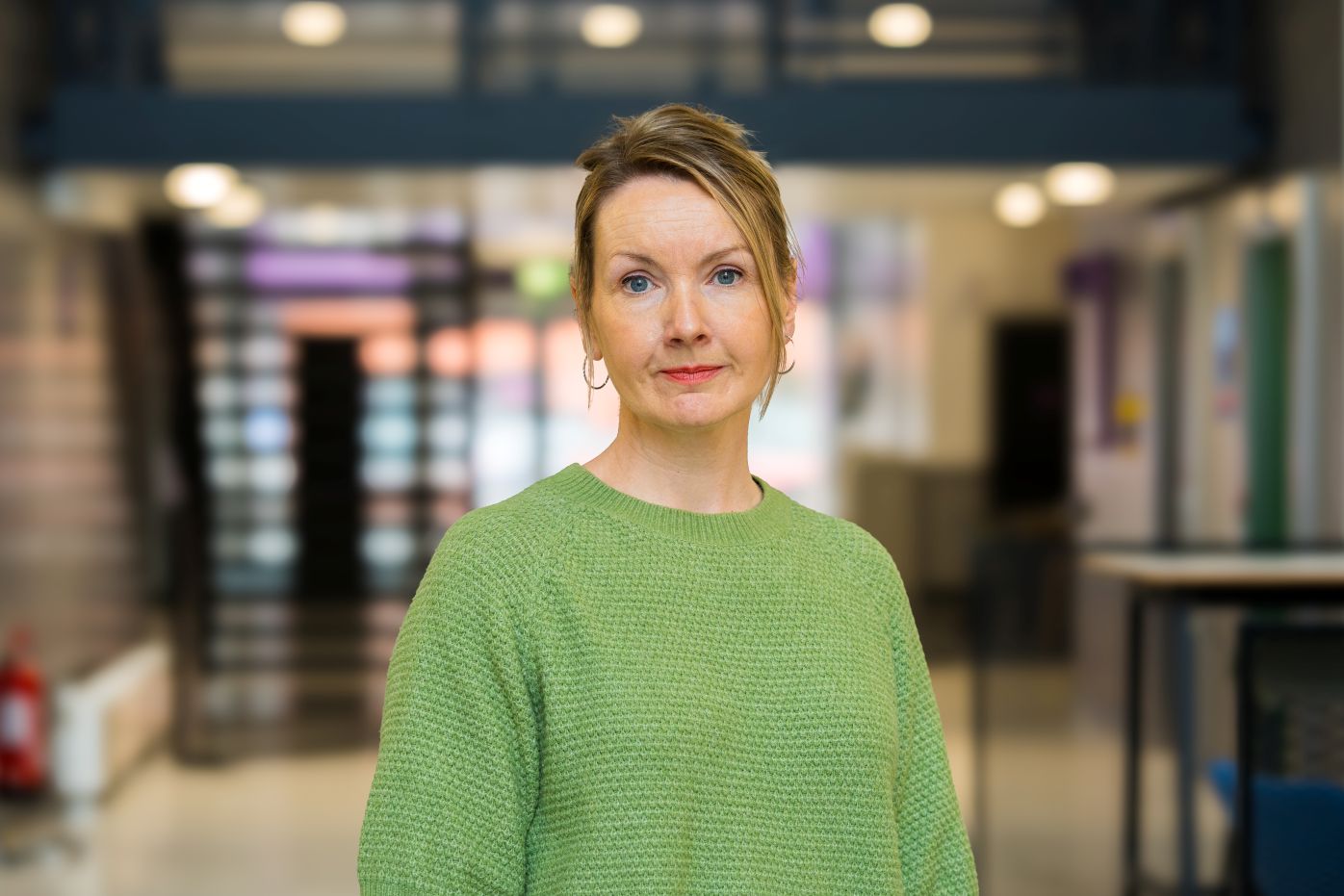
Title: Eating, drinking & swallowing pre-registration competencies and virtual reality simulation: Evaluation of student experience and learning
Pilot Lead: Rachel Purcell
Summary: This pioneering pilot explored the use of virtual reality to teach speech and language therapy students how to assess and manage eating, drinking, and swallowing difficulties—bringing clinical realism to the classroom through the immersive “Dennis Inworld” simulation.
Impact:
With strong student engagement and measurable boosts in confidence, the project not only met its goals but sparked demand for more VR-based learning experiences across the curriculum:
- The VR simulation was positively received by students and is to be timetabled in the Speech and Language Therapies (SLT) programme in Year 2, semester 1.
- The SLT teaching team will be exploring the development of VR simulation for other SLT clinical populations.
Lessons Learned:
- The scheduling of the VR simulation project was constrained by timings required of the FLP pilots.
- Students found some of the aspects of the simulation reduced their ability to immerse themselves and ‘suspend disbelief. For example, Dennis’s voice lacked some of the qualities we would usually expect in a clinical scenario with a patient at risk of EDS.
- Currently, FMBH does not have a policy or strategy for the use of VR simulation across the faculty. We are aware of other colleagues who are developing VR simulations for healthcare education at the University. A central approach for the sharing of good practice and resources would be beneficial to the longevity of use of VR simulation and likely improve the student experience.
Want to know more? You can read the full report here and also check out this pilot's research showcase poster.
Immersing students into a virtual world: Dr S Hyatt's evaluation of using a virtual lab simulator
Title: Evaluation of Bespoke Simulations for use in an Immersive Virtual Lab Simulator for delivery of Practical education at Undergraduate & Postgraduate Levels
Pilot Lead: Dr S. Hyatt
Summary:
This pilot evaluated the use of immersive, simulation-based digital twin technology to support practical teaching in undergraduate and postgraduate bioscience programmes. The evaluation found that these virtual simulations increased student confidence, engagement, and understanding of laboratory techniques, while also offering a scalable and sustainable approach for practical education. Feedback from students and staff was overwhelmingly positive, highlighting the value of pre-lab preparation, flexibility, and the potential for broader adoption across disciplines
Impact:
- Students valued learning at their own pace, making mistakes in a low-risk environment, and revisiting challenging steps, leading to greater confidence and understanding.
- Simulations provided a low-pressure environment for practicing core techniques repeatedly without time, cost, or resource constraints, helping students feel more prepared for in-person sessions.
- The interactive nature of simulations, combined with adaptive learning and feedback, made them more engaging and potentially more effective for developing procedural skills.
Lessons Learned:
- The modular design of the simulation platform was beneficial, but integration with current digital systems (such as VLE) needs improvement.
- Low initial time demand was helpful, but sustained adoption requires formal recognition in workload models and practical support.
- The pilot aligns with institutional goals, but clearer strategic direction and resourcing are needed for broader curriculum planning.
- Positive feedback highlighted the value of simulations for building confidence and supporting flexible engagement, though usability could be improved.
- Simulations offer a scalable alternative to space-constrained labs, but institutional planning needs to consider virtual formats.
- Broader uptake depends on shifting perceptions around the value of virtual praticals, with departmental engagement and targeted workshops being key.
Want to know more? You can read the full report here.
-(700-x-160-px)-(2).png)
Enhancing the student experience
The student journey: digitally supporting students from matriculation to induction and beyond
Title: Digital User Guides
Pilot Leads: Caroline Hughes and Dr Stuart Christie
Summary: This pilot reimagined student support through a suite of dynamic digital user guides, empowering learners with tailored resources from pre-arrival to academic success. Led by Caroline Hughes and Dr Stuart Christie, the project delivered interactive tools covering everything from maths and physics refreshers to wellbeing and time management—streamlining onboarding and boosting confidence across a diverse postgraduate cohort.
Impact:
The resources have freed staff time from answering basic queries, enabling them to focus more on providing students support with more complex issues. This has also meant that students are able to feel more effective themselves, as they can resolve their own questions at a time that's convenient for them. While out-of-hours support could be extended to cover students who are in other countries or studying around employment it is likely that this would be prohibitive in financial terms.
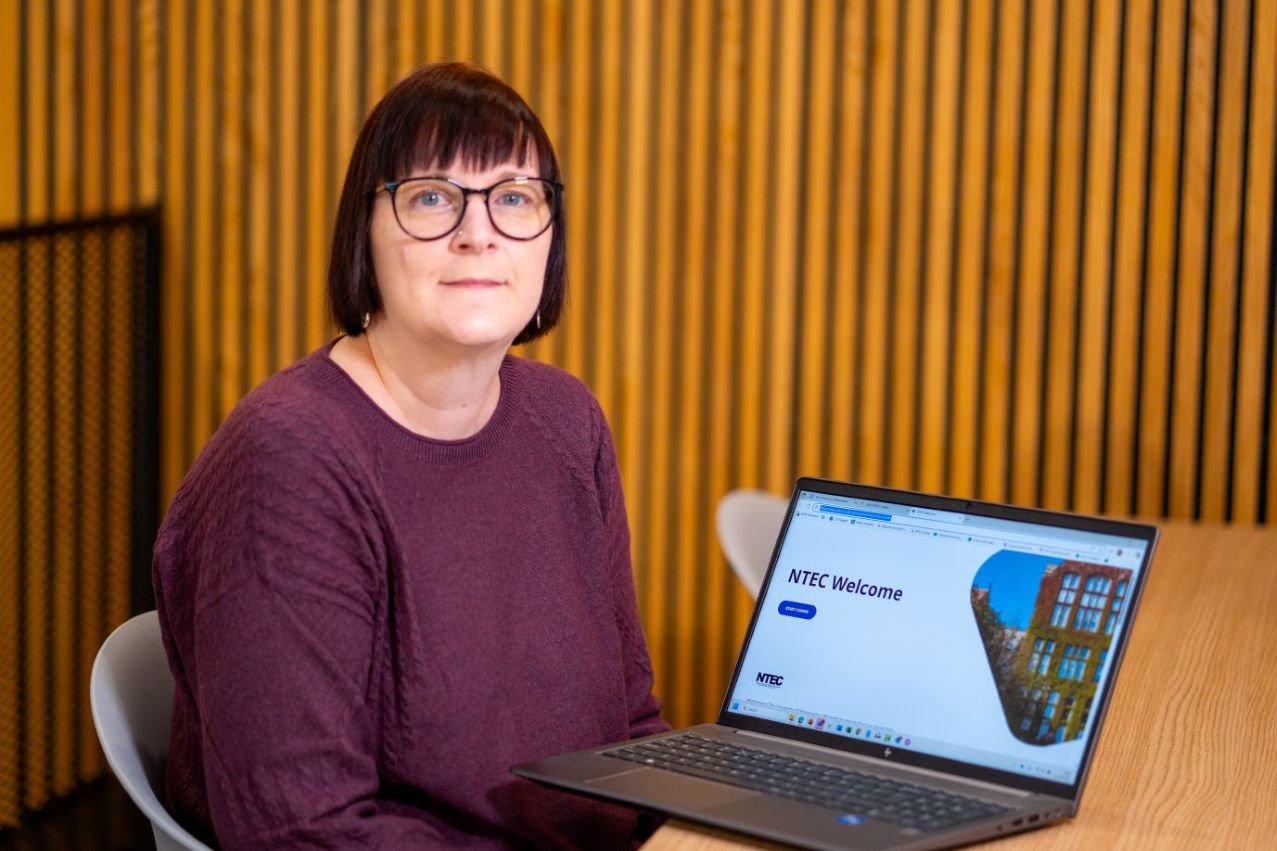
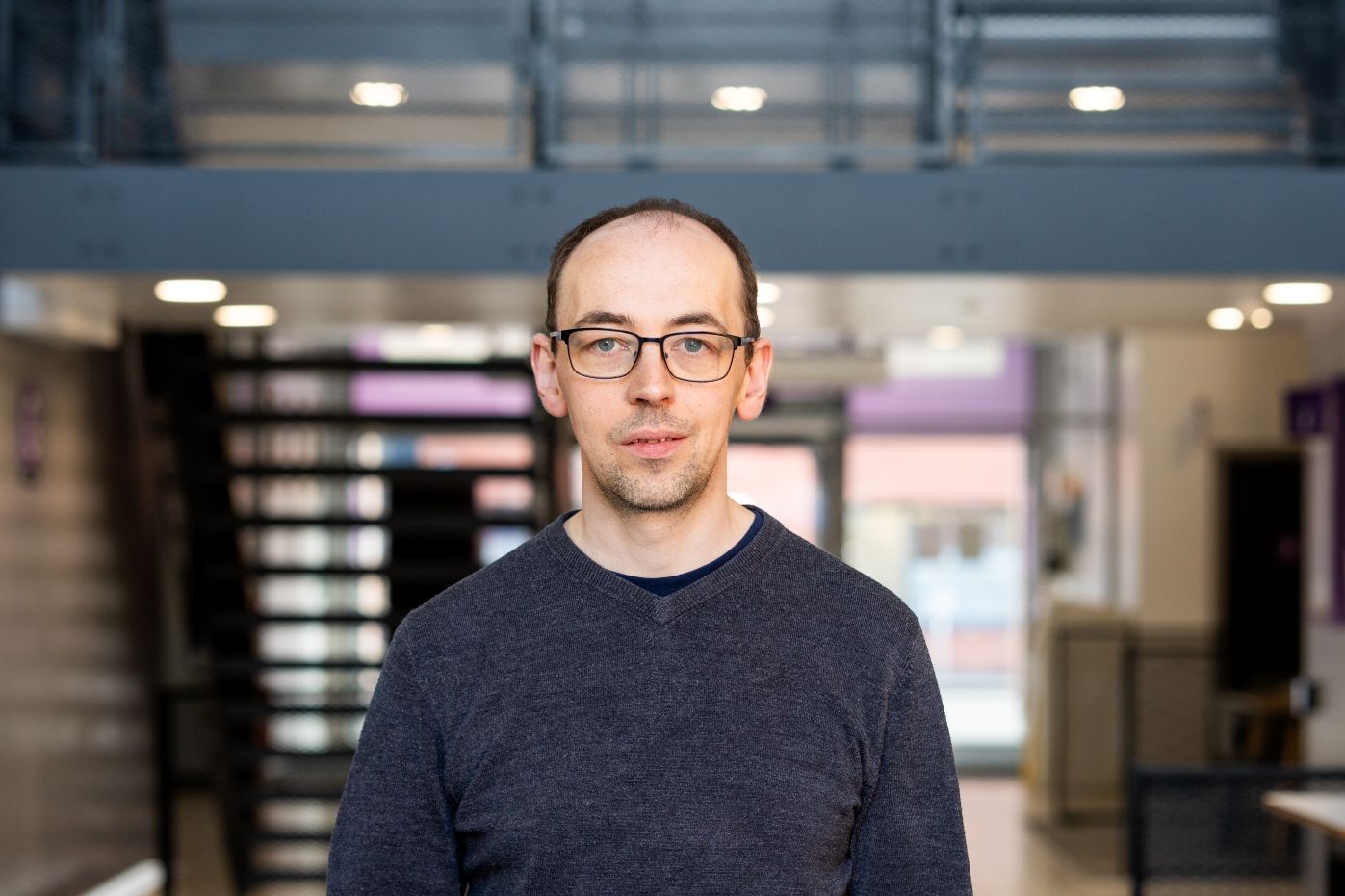
Lessons Learned:
We learnt that it made sense to use the overarching structure to give a greater holistic approach. This allowed students to tell us other areas they wanted, and we realised there were gaps that we have tried to fill.
Want to know more? You can read the full report here and find the resources created below:
- Welcome – Summer
- Maths refresher - Summer
- Physics refresher - Summer
Caroline and Stuart's pilot has now inspired another team to make a similar styled induction resource - Induction.
Global connections: Dr Marianna Rolbina builds peer support for international student success
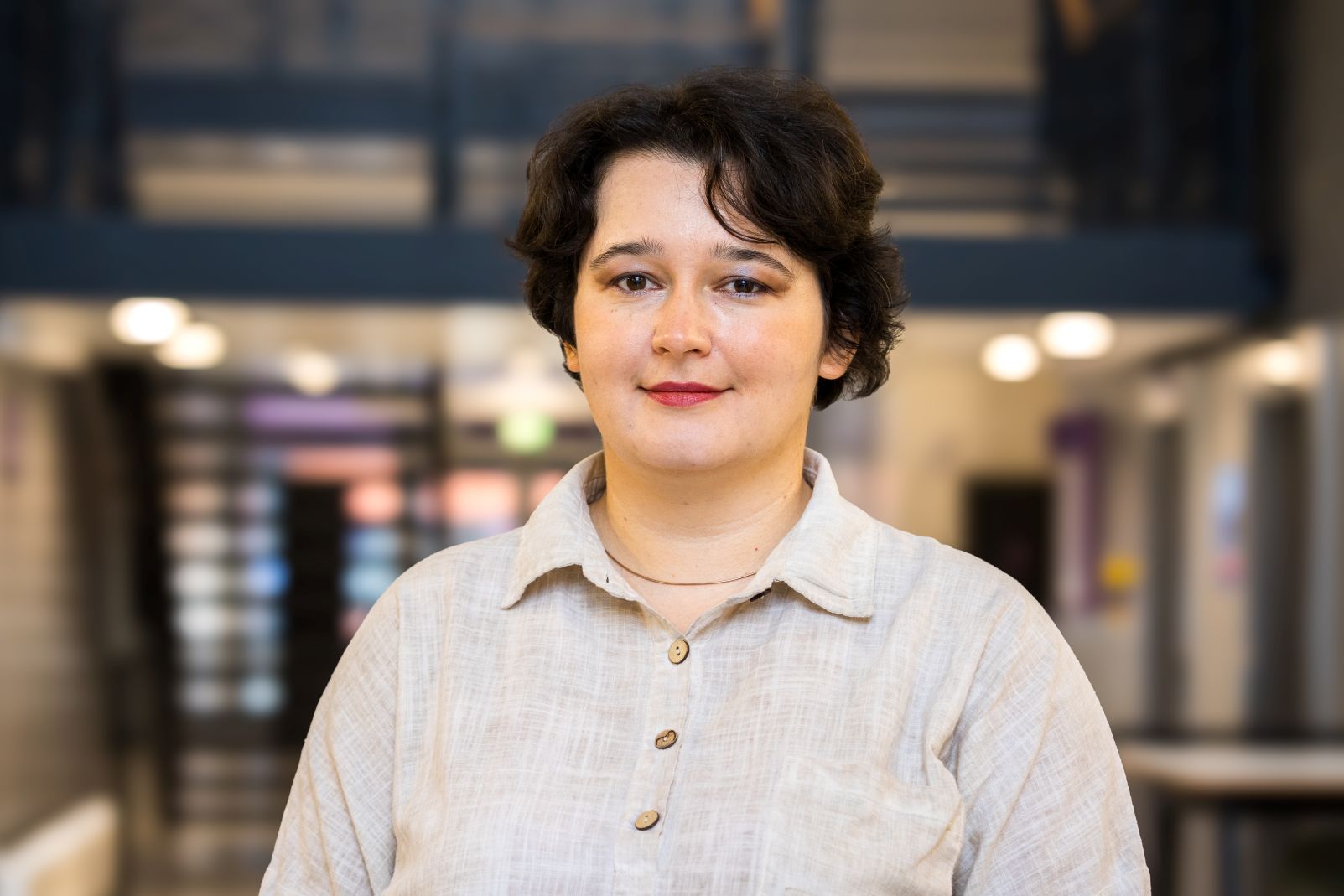
Title: Peer Support System for International Students
Pilot Lead: Dr Marianna Rolbina
Summary:
This innovative pilot led by Dr Marianna Rolbina explored the power of peer storytelling to support international students at the University. By showcasing video interviews of second and third year students sharing their real experiences of adapting to UK academic life, the project significantly boosted new students’ confidence in communication and self-efficacy—laying the groundwork for a scalable, university-wide peer support database.
Impact:
It demonstrably showed the proposed solution's ability to meet the needs of the main intended stakeholder (international students), and its viability as a pioneering solution for international student support that so far has no analogues in the UK. The focus group has also shown the project's relevance to the secondary stakeholder group (academic staff) as a way to raise emotional intelligence and potential useful information for staff training at programs such as HNAP or academic advisor training. In general, the focus group participants considered the database to be a potentially useful resource for all academics, as well as a way to normalise peer advice among students.
Want to know more? You can read the full report here.
Increasing our competitiveness: Integrating industry experience with postgraduate studies
Title: Market Insight for Master’s with Professional Experience
Pilot Lead: Peter Kahn
Summary:
This pilot embarked on an innovative journey to seamlessly blend professional experience with master's degrees within The School of Environment, Education and Development (SEED) and School of Social Sciences (SoSS). Through dynamic market research and cutting-edge competitor analysis, the pilot unveiled models and features that promise to captivate both students and employers, revolutionising the University's postgraduate offerings.
Impact:
The pilot has met its immediate objectives in assessing the viability (in relation to the two key audiences of prospective students and placement providers) of potential forms of new programme provision that is focused on integrating professional/industrial experience into master’s provision within SEED and SoSS; and in assessing the extent to which competitors have already integrated such experience into their master’s provision.
The pilot has highlighted the central importance of securing professional experience for prospective PGT students, with a range of options and insights for SEED and SoSS to leverage this understanding in relation to programme portfolio development, marketing and recruitment.
Lessons Learned:
- The presence or absence of supporting infrastructure to allow for the sourcing, support and quality assurance of placements will closely enable or inhibit intended follow-on activity.
- Proposals do not envisage University staff directly delivering teaching that entails an integration of professional experience (at least, not on any extensive basis) but offering programmes that involve others undertaking this delivery (e.g. employers). Some additional professional services capacity (or contracting of external capacity) is likely to be required to source and support placements. Incentives are already in place where high-performing programmes are established.
- The University’s culture currently offers wide-ranging support for PGT provision that is focused on research. A pivot towards incorporating professional experience within PGT provision would represent a significant shift in culture. Modest levels of staff interest in professional experience compared to their interest in research can be expected to act as an inhibitor of a pivot towards the integration of professional experience in PGT provision.
Want to know more? You can read the full report here.
-(700-x-160-px)-(3).png)
Testing new teaching practices
Testing and exploring the use of active self feedback
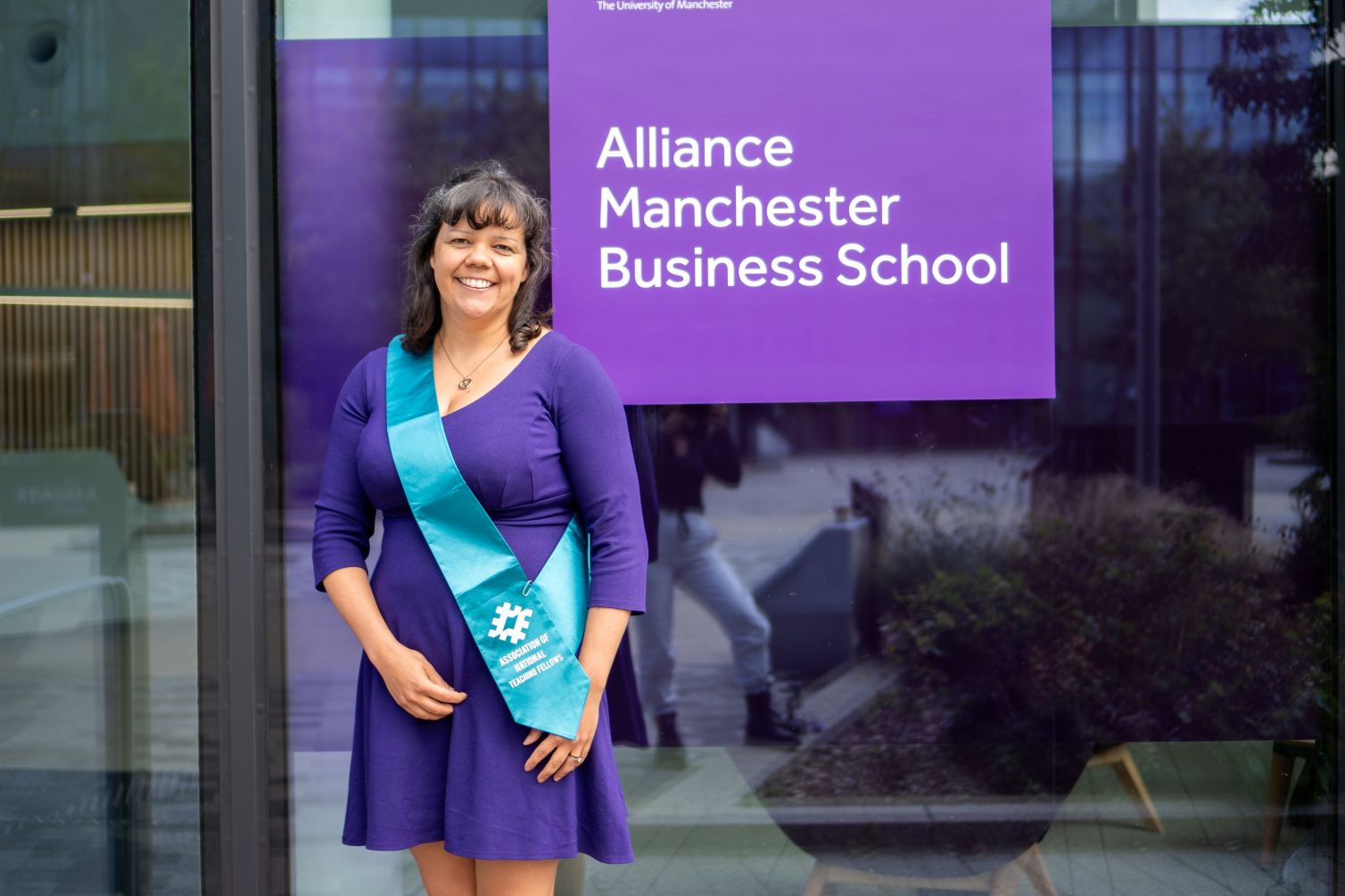
Title: Active Self-Feedback
Pilot Leads: Jennifer Rose, Jen McBride, Louise Walker
Summary:
The Active Self-Feedback pilot aimed to support lecturers in designing classroom interventions for active feedback, create resources and case studies, and understand formative feedback practices for diverse learners. The project successfully delivered workshops, developed 18 case studies across 15 disciplines, and produced resources to help academics implement active self-feedback, with evidence showing improved student agency and independent learning skills. There is strong potential for wider adoption across the university, though further engagement, policy support, and ongoing staff development are needed for sustainable change
Impact:
- An online guide and case studies were produced for staff on Active Self-Feedback to aid implementation across the University.
- Workshops were provided across the University to support lecturers and help them explore the application of active feedback.
- A student guide to Active Self-feedback is being produced, however this is still in progress.
Lessons Learned:
- Microsoft Co-pilot enabled efficient resource creation, but embedding active feedback into standard workflows needs clearer guidance.
- Staff were enthusiastic, especially with scholarly outputs, but time constraints limited broader engagement.
- Strong alignment with FLP and TEF goals, but formal policy support is needed to drive consistent uptake.
- Students gained agency and improved outcomes, though some needed more scaffolding early on.
- The pilot improved collaboration and reflection, but traditional feedback norms remain a barrier in some areas.
Want to know more? You can read the full report here.
Building resilience with Natalie Cunningham's microcredentials
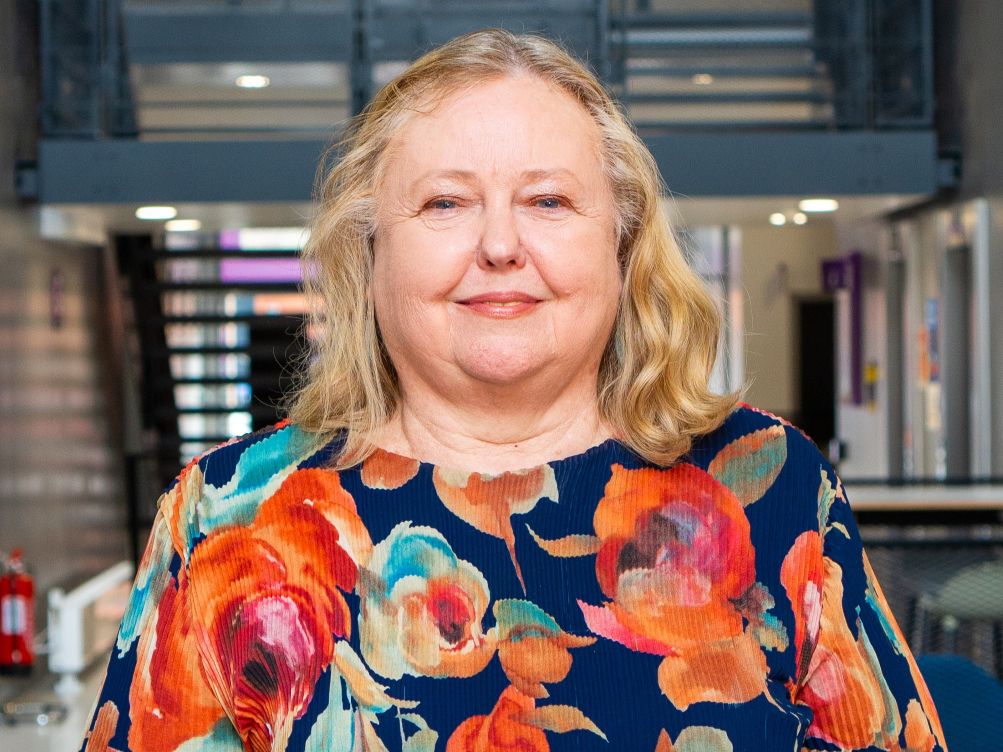
Title: Developing asynchronous 3 x 5 micro credential series on “Developing Resilience in Turbulent Times”
Pilot Lead: Natalie Cunningham
Summary:
In a world where many professionals face instability, trauma, or crisis on a daily basis, how can we better equip them to cope, recover and lead with strength?
Senior Lecturer Natalie Cunningham (GDI, SEED, Faculty of Humanities) is answering that question through a new short course designed to help people build the skills needed to navigate challenge and change. Delivered fully online and developed in collaboration with the Education Development Team, Developing Resilience in Turbulent Times is one of the University’s first micro-credentials — short, focused courses that allow learners to gain specific, career-relevant skills with formal recognition.
Impact:
This pilot has provided practical applied lessons learnt and recommendations that can inform the future design and implementation of micro-credentials in the University. It has delivered several reports, not limited to the below:
- The type of learners attracted to this micro credential programme
- Research on trends in micro credentials and offerings by other Universities
- Three individual reports reviewing each micro credential with feedback from each student
- A How to guide and recommendation report – Lessons and Insights from the microcredential
Lessons learnt:
- Marketing should not be centralised but should be shaped by schools and faculties as targeted marketing can attract the right audience.
- Micro-credentials need to be designed based on real needs. The research and needs analysis conducted by GDI identified resilience as a priority. They should also be viewed as part of a larger learning ecosystem. The need for Communities of Practice (CoP) emerged from this micro-credential, providing a platform for leaders and managers to discuss key resilience concepts and form a community of support.
- Good design ensures student engagement and a positive experience. The design time for an 8-week, 50-hour micro-credential averaged 125 hours for the E-Learning Technologist and 240 hours for the academic.
- Key andragogy principles should underpin the design of online learning. The six principles of Knowles’ andragogy theory were applied in the pilot, emphasising self-direction, the role of experience, readiness to learn, orientation to learning, the need to know why, and intrinsic motivation.
- Offering smaller assessments rather than one big assessment allows more realistic deadlines for working professionals, and using competency-based grading.
- A differential tiered costing structure is suggested, with different rates for individuals, students, alumni, and corporates. Clear policy guidelines and approval processes are needed, and the roles and responsibilities of departments, schools, faculties, and the university must be defined.
Want to know more? You can read the full report here.
Enabling flexibility: Richard Prince's successful online and blended learning delivery
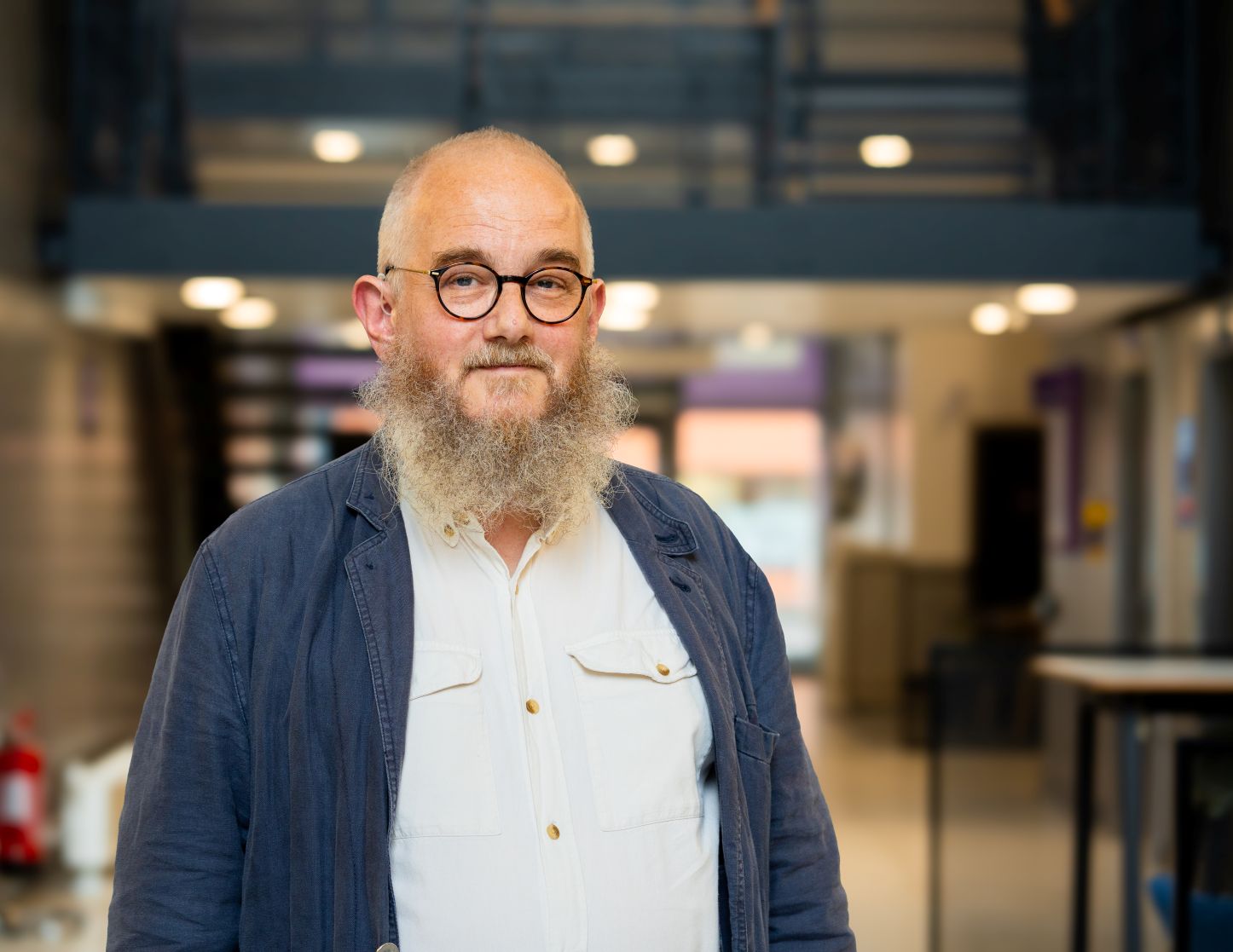
Title: A dual delivery exemplar
Pilot Lead: Richard Prince
Summary:
This pilot successfully delivered a dual-format, accessible module unit 'BIOL10822 Drugs: From Molecules to Man', allowing students to choose between online and blended learning. The project met its objectives, achieving high student engagement and positive feedback, while also making significant strides in accessibility and innovative teaching methods
Impact:
- The pilot offered students the choice between studying in a blended or online format, which significantly enhanced accessibility and inclusivity. This flexibility was particularly beneficial for neurodivergent students, those from disadvantaged backgrounds, and those with caring responsibilities or long commutes.
- The pilot led to improved student success, with unit marks increasing by 14% compared to the previous cohort.
- The pilot had a positive impact on staff experience, with increased interaction with students during active learning sessions transforming the teaching experience and significantly developing skills in accessible pedagogy and digital literacy
- Overall, the pilot successfully met its objectives, leading to improved outcomes for students and staff, and settng a foundation for future enhancements in flexible learning. For the full impact of this pilot, please see the full report.
Lessons Learned:
Many academic staff engaged in digital development are on Teaching and Scholarship contracts and lack access to high-specification equipment. Currently, IT Services provides only a single, low-specification laptop, which is insufficient for tasks such as video editing or interactive content creation. Upgrades often require personal grant or divisional funding, which is inconsistent and inequitable.
Many academic staff are already stretched thin by the transition to Canvas. To make meaningful progress in flexible and digital learning, greater recognition must be given to these efforts in workload allocation models.
Want to know more? You can read the full report here.
Boosting postgraduate success: Mastering oral skills with innovative project learning and viva voce assessments
Title: Enhancing Postgraduate Oral Competency through Problem-Oriented Project Learning with Viva Voce Assessments
Pilot Leads: Craig Thomas and Louisa Dawes
Summary:
This pilot explored innovative teaching methods by integrating viva voce assessments and Problem-Oriented Project Learning (PPL) into postgraduate and undergraduate courses. This exciting initiative not only enhanced student confidence and critical thinking but also fostered a collaborative learning environment, making education more engaging and inclusive
Impact:
The pilot successfully enhanced students' oral competencies and critical thinking skills. Students reported increased confidence in discussion-based tasks and appreciated the opportunity to engage in authentic oral assessments. It also led to sustained pedagogic changes, with course leads restructuring seminars and assessments to better align with inclusive and flexible learning principles.
Lessons Learned:
- Viva voce and group work can be highly effective, but must be supported by inclusive design and clear expectations.
- Student autonomy increases engagement, but requires active support structures — timelines, roles, conflict resolution mechanisms.
- Optionality in assessment format may improve inclusivity and reduce anxiety, especially among students with different learning styles or access needs.
- Institutional tools like Cadmus or peer assessment frameworks could be integrated to improve fairness in future iterations.
- The undergraduate cohort can engage deeply with viva-style group work when the assessment is embedded in a field setting or experiential task.
Want to know more? You can read the full report here.
Open Educational Resource for teaching parametric pattern construction
Title: Open Educational Resource for teaching parametric pattern construction
Pilot Lead: Dr Simeon Gill
Summary:
The 'Open Educational Resource for teaching parametric pattern construction' pilot successfully transitioned its resource to University of Manchester hosting, ensuring ongoing access for learners. However, progress was hampered by limited internal support and staffing challenges, restricting the development of new materials.
Impact:
- The pilot was able to transition the existing Open Educational resource to University hosting from it's external host and create a structure within the University platform to ensure access to the resource.
Lessons Learned:
- The was great difficulty employing existing PGR's and securing necessary resources from UoM.
- There is a significant workload burden positioned on those leading these kinds of projects and having to feedback was not helpful.
- Until there is more support for short term staff and the employment of PhD researchers, it will be difficult to deliver these projects alongside other activities.
Want to know more? You can read the full report here.
-(700-x-160-px)-(5).png)
Reimagining the learning experience
Beyond data: Using analytics to cultivate deeper learning
Title: Incorporating Knowledge-building Analytics
Pilot Lead: Drew Whitworth, Dina Soliman and Zhuoran You
Summary: This pilot reimagined assessment by embedding knowledge-building analytics into a postgraduate course, shifting focus from final outputs to the learning journey itself. By integrating collaborative digital tools and real-time analytics, the project empowered students to reflect, adapt, and grow while also helping staff detect AI misuse and manage workload more effectively. The result? A compelling case for scaling “ergative assessment” as a flexible, future-ready model across programmes.
Impact:
Overall, impact on workload was ameliorated by the use of learning analytics as the basis for feedback. Tutors used analytics to determine student engagement, identifying patterns in who was initiating discussions versus merely responding. Workload did shift somewhat, to earlier in the semester, but room was made for this by changing the nature of ‘contact hours’ in later weeks of the course, substituting online knowledge-building work for lectures, thus giving both students and staff the time needed to conduct this work.
The pilot led to improved outcomes and behaviours in the field of Flexible Learning practice. The strategy states that an objective of the FLP is to allow “staff to play to their strengths and balance the demands of research and teaching to maximise job satisfaction and outcomes”. The focus on workload in the Pilot has addressed this issue and shown that an ergative approach, with the help of learning analytics and supported by properly inducted teaching assistants, can be enfolded into the workload of a typical course unit leader on a Teaching and Research contract.
Lessons Learned:
- To have a better sense of community among the pilot owners in the Flexible Learning Programme. While information has been fed upwards in the pilots, pilot owners have not had any shared information back down. Increased communication around the pilot activities would have been beneficial.
- It has proven difficult to get project staff paid. The Pilot Owner’s ignorance, at the start of the project, of relevant procedure has not particularly been altered by its end, thanks to conflicting advice and guidance provided from a range of different sources. Considering that we very much hope to continue collaborating with our strategic partners in Toronto it does little for the image when pay claims take months to be fulfilled.
Want to know more? You can read the full report here.
Exploring flexible sustainability learning at scale with the RoundView
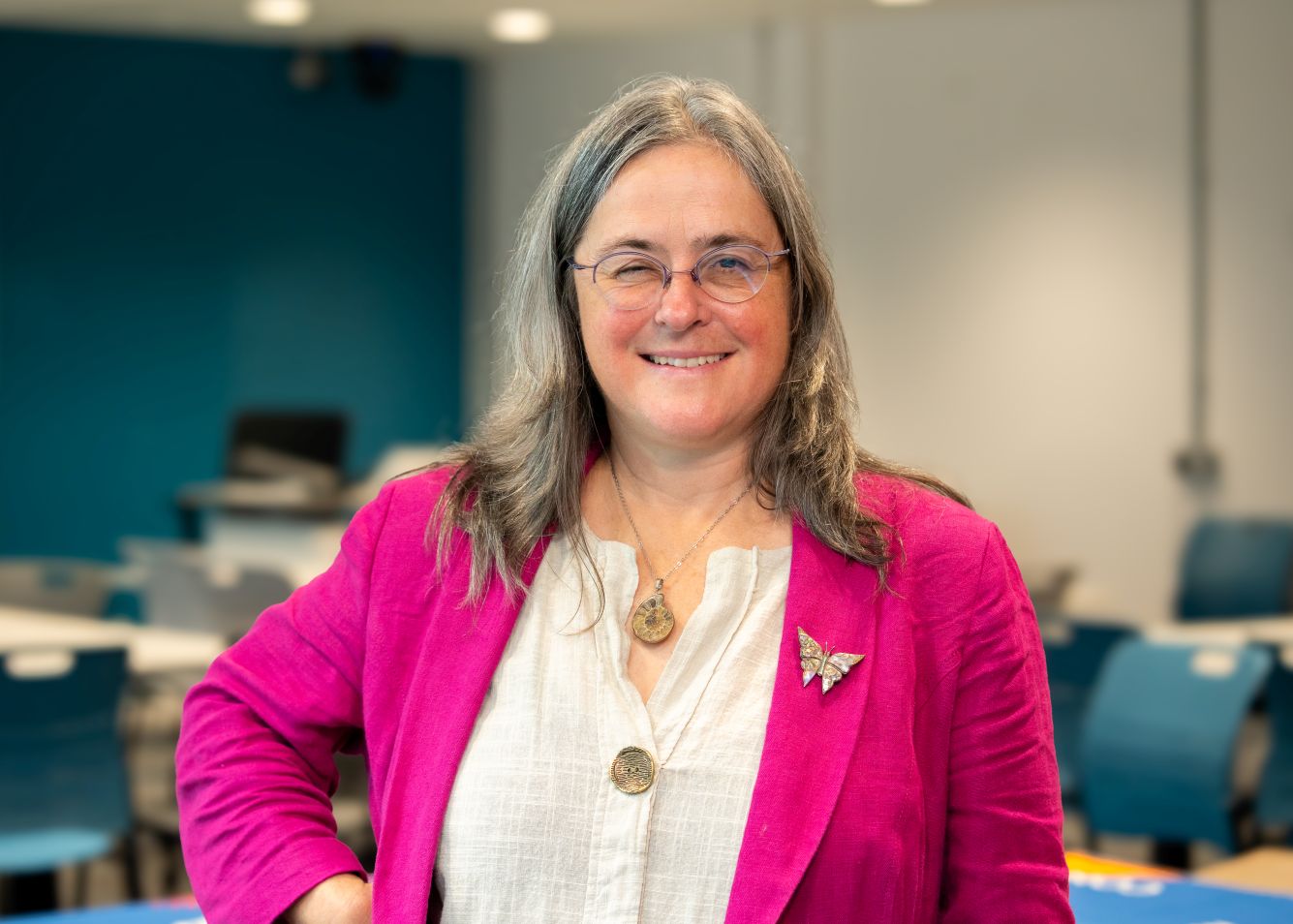
Title: Exploring flexible sustainability learning at scale with the RoundView
Pilot Lead: Joanne Tippett
Summary:
This pilot boldly reimagined sustainability education at scale, transforming the award-winning RoundView toolkit into a dynamic, hands-on and digital learning experience. With over 1,100 participants across 32 events, it sparked hope, built community, and empowered students and staff alike to become changemakers, whether through tactile puzzle games, interactive exhibits in libraries, or the new ThinkingWare platform for co-creating learning resources. This pilot didn’t just meet its goals, it reshaped the future of flexible sustainability learning at the University of Manchester.
Impact:
Overall, the pilot successfully met its objectives, leading to the development of substantial resources, improved learning design, and a growing community of practice for flexible sustainability learning at the University of Manchester. It catalysed a culture shift by embedding the RoundView framework into curricula, outreach, and public spaces - sparking hope, interdisciplinary dialogue, and real-world impact from classrooms to libraries and even youth climate conferences.
Lessons Learned:
- The process of co-producing learning with students highlighted an equity issue. Students from less well-off backgrounds need to be recompensed for their efforts, but the process of paying students was lengthy and complex
- A major inhibitor to scaling up sustainability learning was the over-stretched nature of staff across the university, making it difficult to introduce new ideas
- There were significant challenges in effectively communicating with staff and students about opportunities for flexible learning
- Important face-to-face workshops need to be prioritised early in the semester, and the incentive of obtaining a digital badge may be useful
- The rigid lecture theatre-style layout of flat teaching spaces was identified as an inhibitor to interactive face-to-face teaching. Rooms are not planned for flexibility, and cabaret style is not prioritised
Want to know more? You can read the full report here. You can also read our press release on the Roundview framework.
Digital Play: Reimagining innovation through immersive tech and interdisciplinary collaboration
Title: Digital Play: Interdisciplinary Short Court Pilot
Pilot Lead: Charlene Gallery
Summary:
The Digital Play pilot ignited interdisciplinary innovation by immersing students from Fashion, Physics, Computer Science, and more in cutting-edge tools like Style3D, SEAMM.io, and Unity XR. Through hands-on sessions and ethical reflection, participants gained confidence in AI-assisted design, immersive prototyping, and blockchain traceability—reimagining their roles as co-creators in the future of digital transformation.
Impact:
- The Digital Play pilot successfully demonstrated the value of immersive, interdisciplinary digital learning in preparing students for the demands of Industry 5.0.
- The pilot’s findings revealed strong student appetite for digital experimentation when framed through cross-sector relevance and collaborative challenge. Participants not only developed new skills in AI, 3D simulation, immersive UI, and blockchain, but also questioned how these tools will reshape professional practices across disciplines.
- The programme exposed structural gaps in current curricula, highlighting the need for accessible, flexible, and critically framed digital learning experiences at university-wide scale. While the pilot involved a small, STEM-heavy cohort, it provides a strong foundation for developing a UCIL module that is inclusive, scalable, and strategically aligned with national and institutional goals for graduate digital readiness.
Lessons Learned:
- While the primary budget lines were successfully delivered, the final component, development of post-session video tutorials, was not completed. This was due to time constraints in incorporating student insights into the final resources, as well as the requirement to spend all allocated funds before the close of the financial year.
- The inability to deliver the post-session content was a missed opportunity to extend the pilot’s impact. In future funding rounds, earlier scheduling of resource development and clearer financial support at a departmental level would help ensure all deliverables are realised.
Want to know more? You can read the full report here.
Catherine Millar repurposes existing UCIL content to produce a new online course
Title: UCIL/SBS Sustainability Bitesize
Pilot Lead: Catherine Millar
Summary:
This pilot is due to deliver an online resource on sustainability for Year 1 undergraduate students in the School of Biological Sciences. It remains to be determined whether it will inspire staff to embed the principles of education for sustainable development into their teaching practice. We will survey students at the end of Semester 1 to assess whether they felt that this bitesize unit met their learning needs. An updated version of the report once the pilot has reached completion will be available on this page in early 2026.
Impact:
To be determined.
Lessons learned so far:
-
Need to allow more time to recruit interns as the the time it took to do this impacted the timeline of the project.
Want to know more? You can read the full report here.
Supporting the staff experience
Empowering our staff: Sarah Dyer evaluates approaches to educators' professional development to successfully transition to Canvas
Pilot: Piloting and evaluation of approaches to the professional development for educators to enable successful CLE roll out
Summary: This pilot undertook definition and piloting to gather evidence of what strategies are effective for ensuring the academic professional development needed for successful roll out of the new CLE in Humanities.
Pilot Lead: Sarah Dyer
Pilot Impact:
- Humanities leadership groups (Professional Services and TLSE) have received reports and presentations about the process and outcomes of the project. The Faculty are currently setting up a Teaching Academy and, informed by this project, have chosen to understand similar discovery research as the ’service’ is designed.
- This pilot project has been shared with the Strategic Change Office (as a presentation to their all staff away day and in meetings); as a presentation to the PS leadership away day; a presentation to the IT all staff away day is planned. The learning from this project will inform the writing of the Manchester 2035 playbook. Humanities PS and academic colleagues who will use the training and support in making the move to Canvas (and indirectly their students): the pilot has informed the support package that is being offered, albeit not as directly as hoped for. The discovery research was useful to the FLP Learning Designer (Humanities) who designed much of the support.
Lessons learned:
- There's a need to articulate how the people delivering a service understand the system/process and their role in it, if you are going to look for different ways of working.
- We learned that supporting skills development isn’t sufficient to support new ways of working. The evaluation also identified identity (see above); sense of autonomy, permission, and accountability; ways of working especially for collaboration as areas in need of articulation and development.
Want to know more? You can read the full report here.
